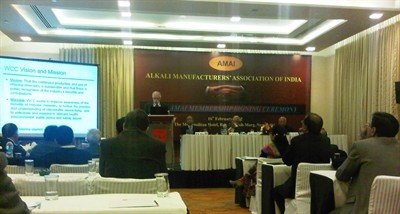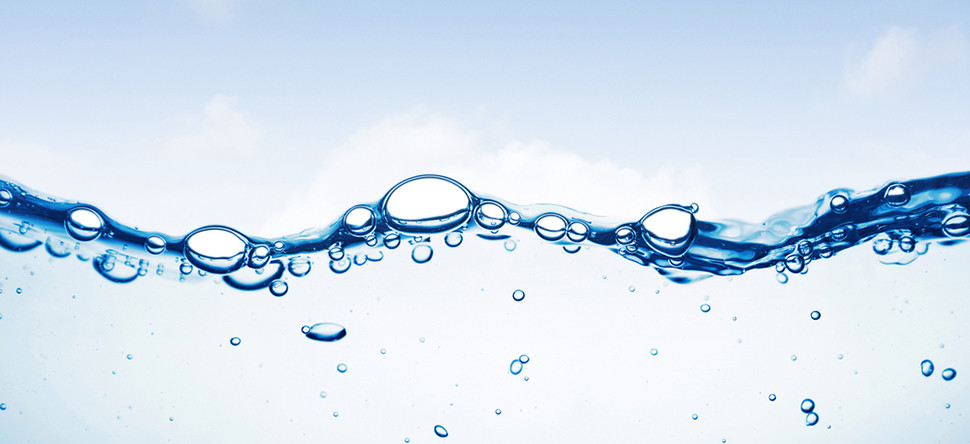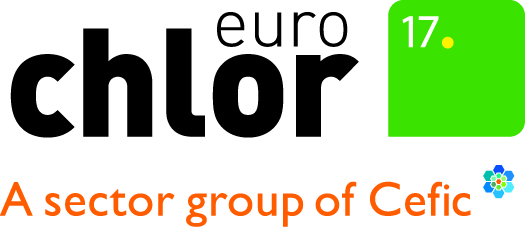Indian Chlor-Alkali industry joins World Chlorine Council
AMAI officials at the ceremony included the Association's President, Mr. Mudit Jain, the immediate Past President Mr. Gilra, who will also join the Governing Council of WCC, and the Executive Director Dr. Singh. Mr. Jose Cyriac, Secretary of the Ministry of Chemicals and Fertilizers of the Indian Government. WCC was represented by Mrs. Judith Nordgren, Managing Director of the Chlorine Chemistry Division of the American Chemistry Council ACC and Alistair Steel, Executive Director of the WCC secretariat.
With about three million tonnes of capacity, India is an important addition to WCC. Although Indian chlorine consumption per capita is only about 1.85 kg (China
13 kg, Brazil 7.8 kg), the growth potential is substantial. Chlorinating drinking water still is not mandatory in India, and the economic growth - together with the aspiration of increasing the standard of living - promises expansion of the Indian chlor-alkali sector.

During the ceremony, the Indian Government representative amusingly compared the Indian chlor-alkali industry to a daughter-in-law joining the WCC family. According to Indian
culture, she has the obligation to follow the rules set out by the head of the family, who in turn takes the responsibility for leadership and good guidance.
Emergency response network
Alistair Steel underlined that "the management of AMAI has an advanced record of HSE initiatives, which is a crucial aspect of WCC " And he added: "An emergency response network for the industry is soon to be launched." Unlike in other regions, chlorine is not transported in bulk but in 'tonnees', these are 930 kg containers. Given the local road network, the new emergency response network will represent a valuable improvement.
The Indian Association also has a Customer Education and Stewardship Programme in place as well as a programme based on Corporate Social Responsibility.
Worthy of note is that the Indian chlor-alkali industry will have completed the conversion of all mercury bases production by the end of 2012, according to a voluntary commitment made in 2003.
The Indian Association is the second major chlor-alkali federation to have recently joined WCC, after the Chinese Association CCAIA that became Associate Member in October 2011. Further regions to tackle are the Middle-East, Africa, South-East Asia and Australia. Their individual chlorine capacities are relatively limited.

